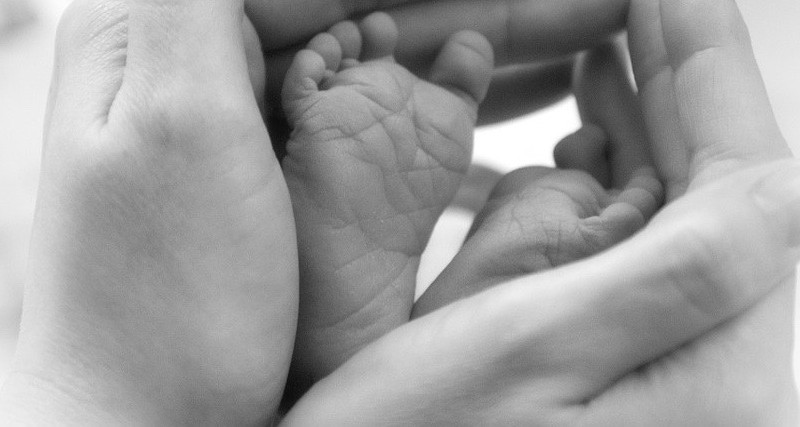
The most important aspect of our mission, as it relates to human dignity, isn’t our social action or our responsibilities as citizens or as culture-makers. The most important aspect of our mission for human dignity is the gospel itself.
When we recognize that human dignity is contested by spiritual warfare, we understand that politics is indeed downstream from culture, and that culture is downstream from conscience, and that conscience is downstream from the kingdom of God. We cannot combat a culture of death merely with appeals to abstract human dignity based on natural law (not that there’s anything wrong with that). In every assault on human life, there’s not only a life left for dead but also a conscience left for hell. The gospel addresses both.
On the abortion question, for instance, the sheer numbers of children aborted each year ought to prompt us to realize that perhaps as many as one out of every three women in our congregations has aborted. With her is typically a man who approved of or paid for or pressured her to this act. Many of them sit silently, in the fear that God can forgive any sin but this one. They try to forget it, and secretly wonder if they are included in the “whosoever will” of our gospel invitations. When we preach both of justice and of justification, God breaks the power of condemnation. He uncovers sin and judgment. The cries of the oppressed, the orphaned, the murdered, are heard, and their Redeemer is strong. The gospel doesn’t wave away such judgment.
The gospel says that those found in Christ are joined to the judgment he endured to the cross, and they stand with him in the new creation of an empty tomb. The repentant woman who had an abortion, the repentant man who empowered an abortion, and indeed the repentant abortionist who committed the abortion, are not beyond the grace of God. Every accusation against them, and against you and me, is true. But in Christ, we have been through the scrutiny of the tribunal of God. We have already been through the justice of hell. And in Christ, God declares what he thinks of us, “You are my beloved child, and in you I am well-pleased.” We warn of justice, but we always, this side of the grave, offer mercy.
This gospel, then, grounds human dignity since in it Christ Jesus offers himself not to spirits or angels but to the sons and daughters of Adam. We have to be reminded of that or else we will always be pulled back to seeing ourselves in terms of “the flesh”—who we think we are apart from our union by the Spirit to Christ. We start then to divide ourselves against one another as Jew and Gentile, black and white, rich and poor, First World and Third World, healthy and disabled, young or elderly, documented or undocumented, born or unborn. But the gospel cuts across the boundaries, and indeed crucifies them all. If we come to God, it will be through one Jewish mediator-king, or it will not be at all. Our call to remember human dignity is, before anything else, a call to remember who we are.
The pro-life movement of the present, like the abolitionist and civil-rights movements, is not, and never was, a “moral majority” issue. Left to ourselves, the majority will always protect the powerful, and forget the weak. That’s especially true when the weak at issue are not only powerless but invisible.
As technology advances, our advocacy for human life has become in many cases stranger and stranger to the world around us, as we advocate not only for late-term infants in the womb but for those “embryos” who are sacrificed for medical research or for fertility treatments. We argue not only against abortion “for birth control,” but for the sacrificing of human life for what seem to be heroic causes: the curing of diseases, the providing of children to infertile families, the advance of the human race into new vistas of evolutionary progress. But as Walker Percy put it a generation ago to the abortion-rights movement of his day: “According the opinion polls, it looks as if you might get your way. But you’re not going to have it both ways. You’re going to be told what you’re doing.” That’s called bearing witness, and it’s not a matter of politics or power but of gospel and of mission.
The kingdom tells us what matters—and it’s not raw power and force of will. The kingdom tells us who matters—and that’s not defined by power and force of will. The church is to embody these realities, and the mission sets out to teach and persuade the outside world of a gospel that honors and protects life. To deny human dignity then is to kick against Christ himself, since he brings with him nothing of the sort of power or wisdom the present age craves. When we care for the vulnerable—the unborn, the aged, the poor, the diseased, the disabled, the abused, the orphaned—such is not “charity.
These are not “the disadvantaged,” at least not in the long run. These are the sorts of people God delights in exalting as the future rulers of the universe. It takes more than American values to see that.
_____________
This article is adapted from my new book Onward: Engaging the Culture Without Losing the Gospel.
Human Dignity According to the Gospel, by Russell Moore, is an article from Pastors.com. © 2012 Pastors.com.


